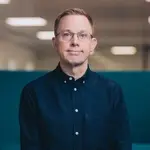
Companies with big operations in one currency and financial accounts reported in another currency always run the risk of falling foul to unfavourable foreign exchange (forex) rates. While forex can work both ways, helping to improve earnings in some instances, today's trading update from RPC (RPC) is a good illustration of how they can be a big negative factor.
The ketchup bottle-to-coffee capsules packaging group has warned that revenue for the financial year to 31 March 2013 will be lower than the previous year, largely because of sterling strength versus the euro. This will drag operating profit down by £4 million. Add in rising raw material costs and you have a terrible share price performance following the news, leaving RPC down 10.2% at 404.9p.
RPC incurs more than 90% of its sales and costs in euros, given its strong position in mainland Europe. Yet its accounts are reported in sterling. Canaccord Genuity noted last month that most of the industrial company's debt facilities are denominated in sterling or US dollars, thus mitigating the balance sheet impact of a stronger ?/£ exchange rate.
The chart (right-click to enlarge and open in separate window/tab) shows how sterling actually weakened against the dollar between summer 2012 and February 2013. Yet RPC is blaming sterling strength for today's forex hit. It is all down to when RPC translates the accounts from euros into sterling.
Canaccord Genuity published a research note on 20 February that said RPC could become a beneficiary of recent weakness in sterling against the euro. It estimated that each 1 cent move in the ?/£ exchange rate impacts profitability by around £600,000.
While forex could be seen as an oddity in today's trading update given the currency pattern since last summer, there are other issues to consider. Market conditions are tough and raw material costs are starting to bite.
Raw material prices act like currency translation in that they can either make or break RPC's financial results. Polymer prices rose to near record levels in September 2012 and reduced gradually towards the end of 2012 before rising again in RPC's fourth quarter. It normally passes on higher raw material costs to customers, albeit with a time lag. This delay in recovering the extra costs had a negative impact on operating profit in 2012/13 whereas it was beneficial in the previous financial year, says the company.
Panmure Gordon has downgraded its earnings forecasts for both the March 2013 and March 2014 financial years. It says anticipated growth rates for the year ahead look weaker than previously anticipated. 'Coupling this with ongoing higher resin prices makes a fairly downbeat short-term picture, though RPC remains best placed within its markets to increase market share and prosper accordingly.'
Canaccord Genuity also downgraded its estimates including a reduction to its dividend growth. It says: 'Although once the impact of currency and raw material lag timing differences are taken out RPC would have shown year on year growth, we believe that the pre-close highlights that trading conditions are tough. This is in spite of the Group?s increasing focus on value added products such as coffee capsules and healthcare.'





